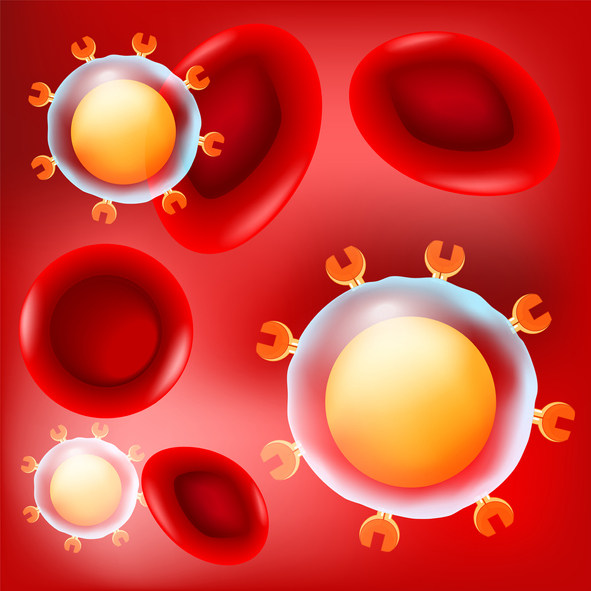This review by expert infectious disease specialists led by Joshua Hill of University of Washington summarizes the shortcomings of vaccines, antivirals, and immunoglobulin treatments for preventing and treating HHV-6, VZV and HSV reactivations. The authors note that cell mediated immunity is far more important than humoral immunity for prevention of reactivation; for example, hypogammaglobulinemia in the absence of concurrent lymphopenia does not correlate with an increased risk of viral reactivation.
The authors note that while CD4+ T cell count is often used as an assessment of immune reconstitution, it may not accurately reflect virus-specific cellular immunity. Commercial in-house enzyme-linked immunospot (ELISPOT) assays have been developed to assess the risk of CMV reactivation. While they have high negative predictive values (>93%), they have low positive predictive values (<30%) for clinically significant CMV infections. Another limitation is the fact that they are not able to differentiate virus-specific CD4+ from CD8+ T cell responses. ELISPOT assays are not available for HSV, VZV or HHV-6.
While antiviral prophylaxis is recommended for HSV, VZV and CMV, it is not universally successful in preventing reactivation, Approximately 10% reactivate with HSV despite prophylaxis, and 26% of umbilical cord transplant recipients develop herpes zoster within five years of the transplant. No antiviral is recommended for HHV-6 prophylaxis, in part because ganciclovir and foscarnet are only modestly effective against HHV-6B.
HHV-6 reactivation occurs in 30-50% of HSCT patients, with severe complications such as encephalitis occurring 1-8% of the time. Reactivation in solid organ transplants is less frequent (approximately 1/3 of liver transplant recipients) and HHV-6 encephalitis is rare in solid organ transplants.
Multi-virus specific T cell products that recognize a collection of double-stranded DNA viruses, including HHV-6B, are being studied for prophylaxis and treatment of viral infections in high-risk HCT recipients. Allovir, in collaboration with Baylor College of Medicine, has developed off-the-shelf virus specific T cell therapies against twelve viruses. Their product Posoleucel (formerly called Viralym-M) is in Phase III trials for both prevention and treatment of HHV-6B, CMV, adenovirus, EBV and BK virus. In a Phase 2 trial, 92% of patients who failed conventional treatment had a complete or partial response to the cytotoxic T-cells (Tzannou 2017). Posoleucel has been administered for drug-refractory HHV-6B encephalitis in a limited number of patients, but data from large randomized trials are lacking.
Limitations of virus specific T cell therapy include the significant costs associated with production and storage, HLA matching between the T cell donor, HCT donor and recipient, the potential impact of corticosteroids and other immunosuppressants on efficacy as well as the theoretical risk of graft versus host disease or cytokine release syndrome.
Read the full article: Heldman 2022

